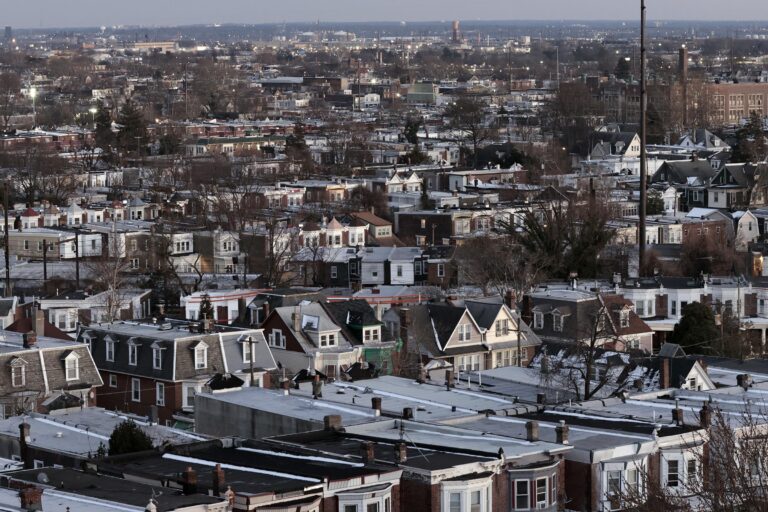PhiladelphiaŌĆÖs Crucial Moment: Strategies to Overcome Persistent Poverty
Economic Challenges and Persistent Poverty in Philadelphia
Philadelphia finds itself at a decisive crossroads as entrenched economic disparities continue to affect thousands of its residents daily. While certain sectors experience innovation and growth, poverty remains a stubborn issue, underscoring deep-rooted systemic obstacles. Experts identify stagnant wages, a shortage of affordable housing, and limited access to quality education as primary factors perpetuating economic stagnation. To reverse these trends, Philadelphia must implement bold, focused strategies that not only generate employment but also foster long-term wealth accumulation among its most vulnerable populations.
Priority areas requiring immediate focus include:
- Enhancing workforce training programs tailored to emerging and high-demand industries
- Boosting investments in affordable housing to prevent displacement and homelessness
- Reinforcing educational systems from early childhood through higher education
- Supporting entrepreneurship and small business development in underserved neighborhoods
| Indicator | Philadelphia (2023) | U.S. Average |
|---|---|---|
| Poverty Rate | 23.2% | 13.4% |
| Unemployment Rate | 7.1% | 4.8% |
| Median Household Income | $47,000 | $69,000 |
Empowering Through Education and Workforce Advancement
Combating poverty in Philadelphia requires a long-term vision centered on education and workforce empowerment. The cityŌĆÖs public schools need significant reinvestment to ensure equitable access to enriching learning environments that cultivate critical thinking, digital proficiency, and practical skills. Innovative programs that link students with internships, apprenticeships, and mentorship opportunities have proven effective in bridging the divide between academic achievement and career readiness.
Additionally, workforce development initiatives must focus on reskilling adults affected by economic transitions. Effective strategies include:
- Community-driven apprenticeship programs aligned with local labor market needs
- Accessible adult education and certification courses
- Collaborations between businesses and nonprofits to establish sustainable employment pathways
| Program | Focus | Expected Impact |
|---|---|---|
| Philly Digital Skills Initiative | Technology Training | 70% job placement within 6 months |
| EcoTrade Apprenticeship | Green Industry Skills | 35% wage increase after 1 year |
| Career Pathways Program | Adult Vocational Training | Certification and career growth |
Investing in education and workforce development is essential for unlocking economic mobility and dismantling the cycle of poverty in Philadelphia.
Grassroots Initiatives Driving Sustainable Community Growth
Across Philadelphia, community-led efforts are emerging as vital forces in tackling poverty through localized, culturally relevant approaches. Recognizing that sustainable progress must originate within affected neighborhoods, these initiatives empower residents to co-design programs that address their unique challenges. From urban gardens to small business incubators, these projects build resilience and foster economic independence. They also emphasize youth engagement, aligning educational opportunities with local economic realities to close the gap between potential and achievement.
Success factors for community-driven programs include:
- Strong partnerships among residents, nonprofits, and municipal agencies
- Workforce development tailored to cultural and community needs
- Ensuring easy access to resources within neighborhoods
- Adaptive programming informed by ongoing community feedback
| Neighborhood | Jobs Created | New Small Businesses | Community Workshops |
|---|---|---|---|
| Fishtown | 310 | 50 | 40 |
| South Philadelphia | 280 | 48 | 42 |
| Germantown | 295 | 43 | 37 |
Policy Innovation and Public-Private Collaboration as Catalysts for Inclusive Prosperity
PhiladelphiaŌĆÖs path to economic revitalization hinges on integrating progressive policy reforms with dynamic public-private partnerships. This dual approach aims to dismantle systemic barriers that have long restricted upward mobility by ensuring equitable access to education, housing, and employment opportunities. Recent efforts focus on removing outdated regulations that inhibit innovation while encouraging private sector investment in historically underserved areas. Stakeholders across sectors agree that coordinated collaboration is essential to generate sustainable growth that benefits all communities.
Ongoing partnerships between government entities and private companies have already produced measurable improvements. Pilot programs offering subsidized workforce training aligned with industry needs have contributed to lowering unemployment among marginalized populations. The table below highlights key intersections where public and private initiatives are driving scalable success:
| Sector | Public Initiative | Private Sector Role | Results |
|---|---|---|---|
| Workforce Training | Subsidized Skill Development | Curriculum Design & Job Placement | 30% increase in employment |
| Affordable Housing | Developer Tax Credits | Construction & Community Outreach | 1,500 new units over 3 years |
| Small Business Support | Grant Programs & Mentorship | Capital Funding & Market Access | 45% revenue growth in local SMEs |
- Agile policy frameworks enable rapid adaptation to evolving economic conditions.
- Fair distribution of resources guarantees no community is overlooked.
- Private sector innovation accelerates the expansion and impact of social programs.
Conclusion: PhiladelphiaŌĆÖs Opportunity to Forge a More Equitable Future
As Philadelphia confronts a defining moment, the choices made today will shape the cityŌĆÖs trajectory for decades. Although poverty remains deeply entrenched, the resilience and potential within its communities are equally profound. By addressing systemic obstacles through thoughtful policy, strategic investment, and collaborative action, Philadelphia has a unique opportunity to break the cycle of poverty and foster a more inclusive, prosperous future. Success will require urgency, dedication, and a shared vision that leaves no Philadelphian behind.








